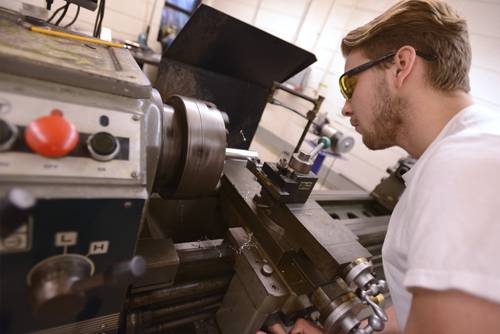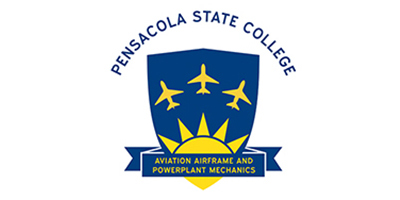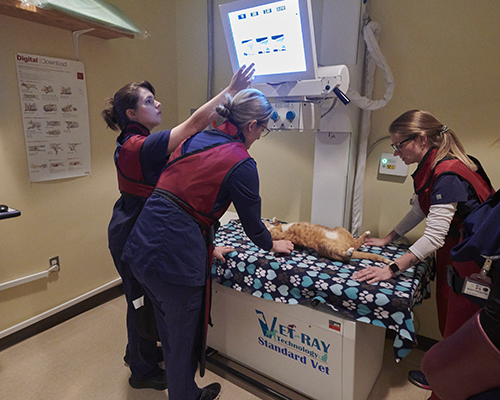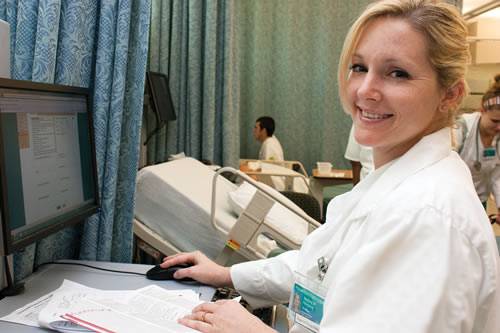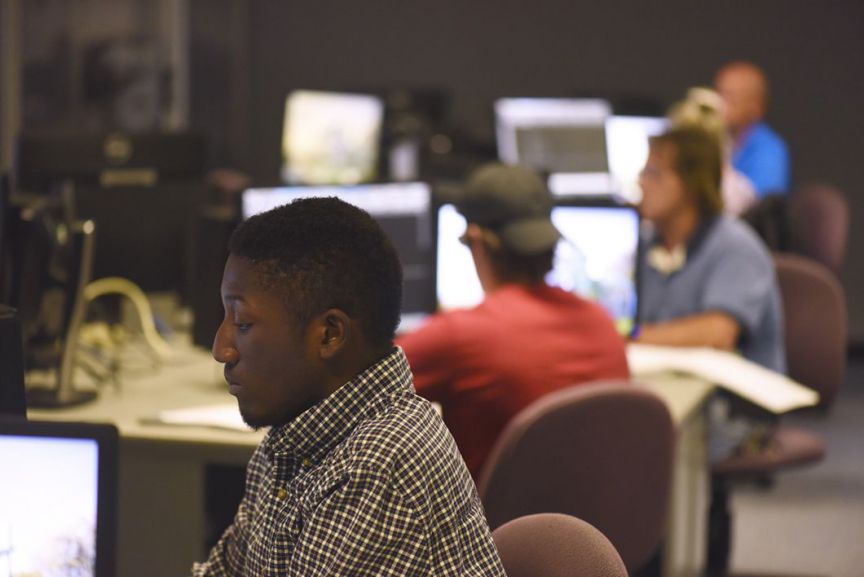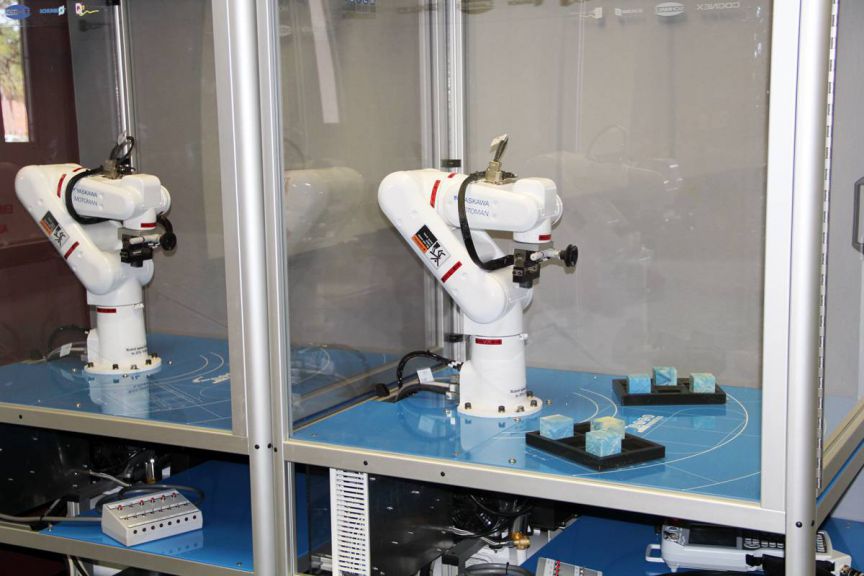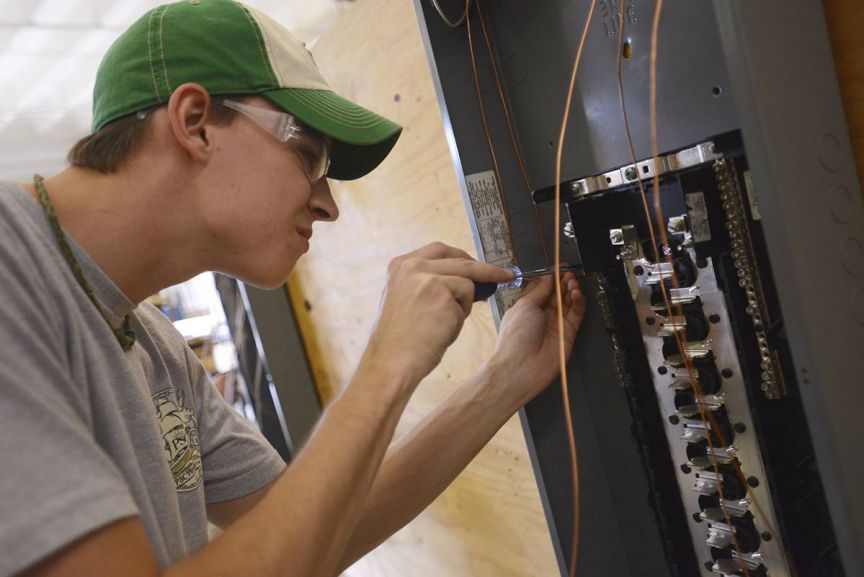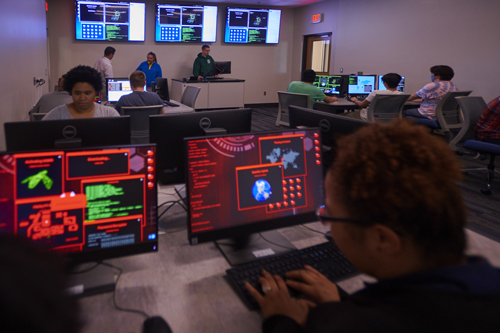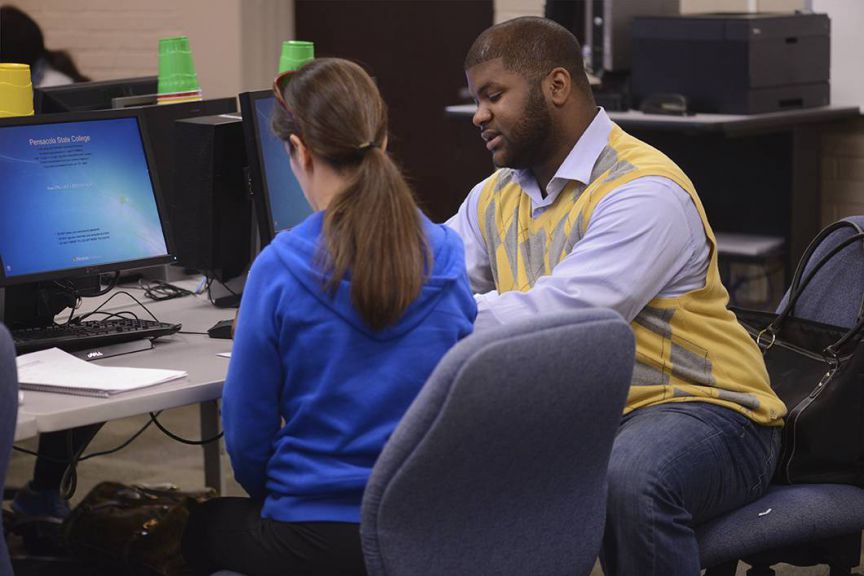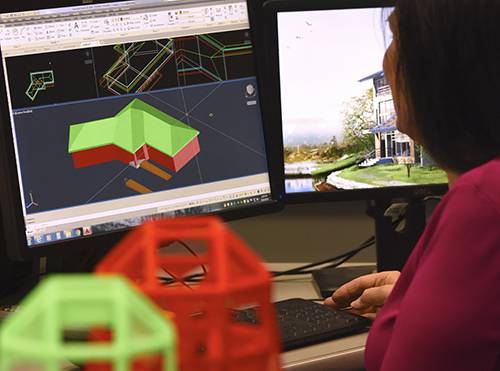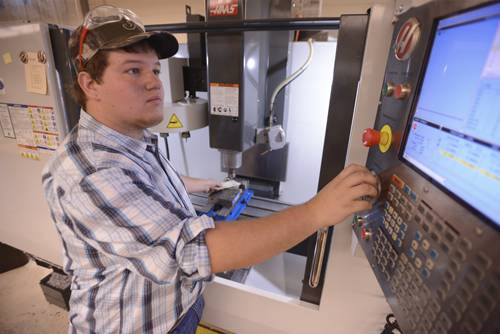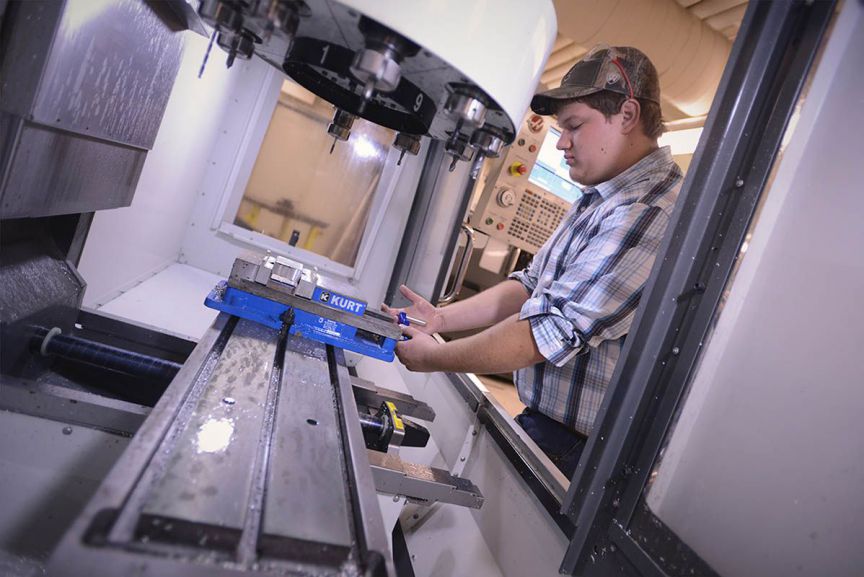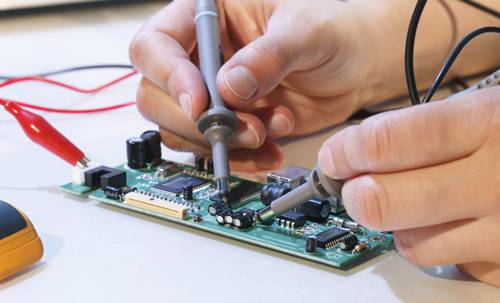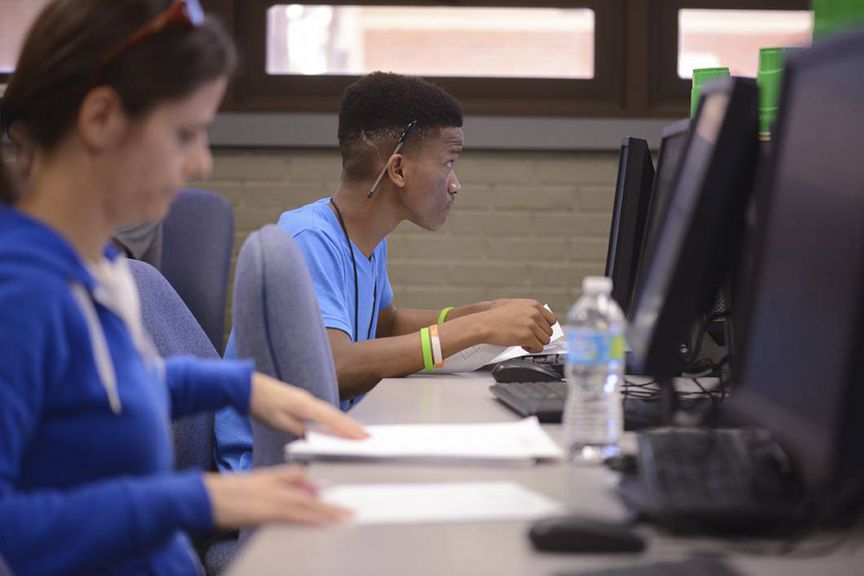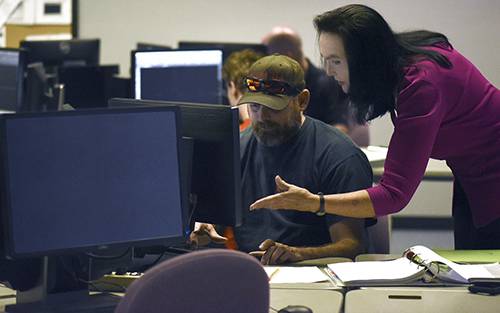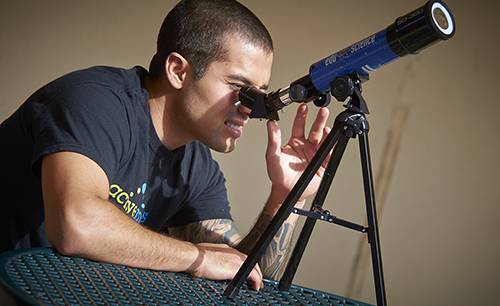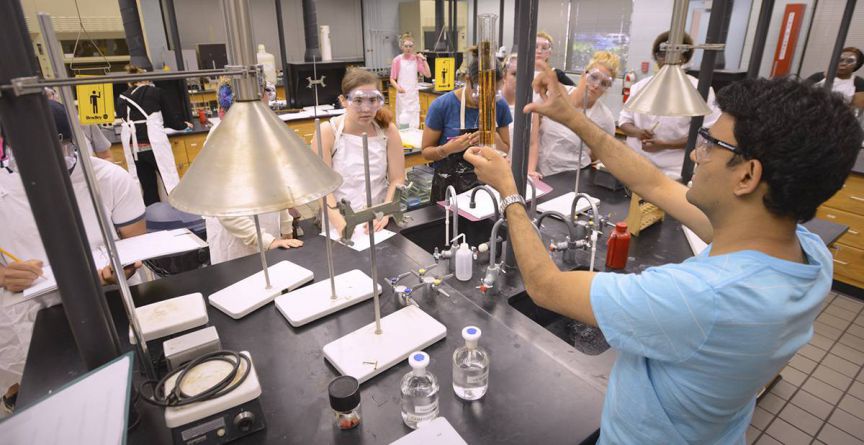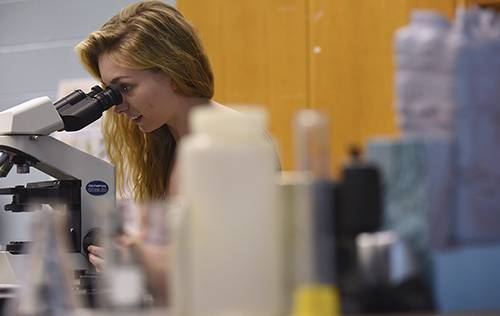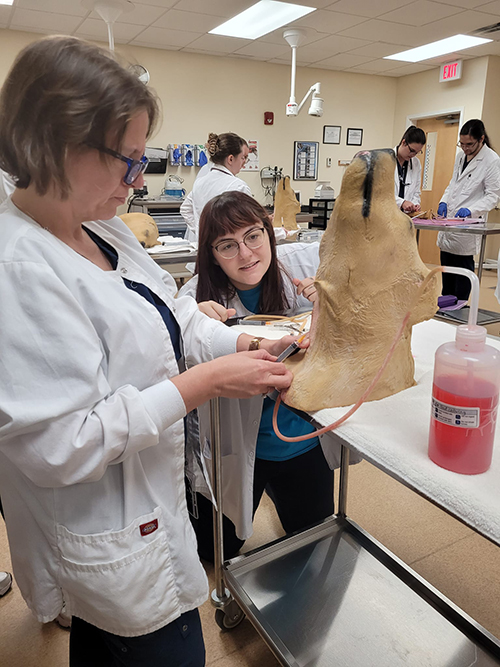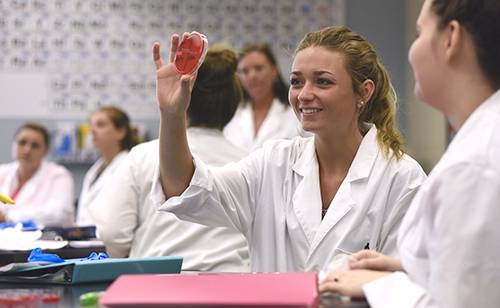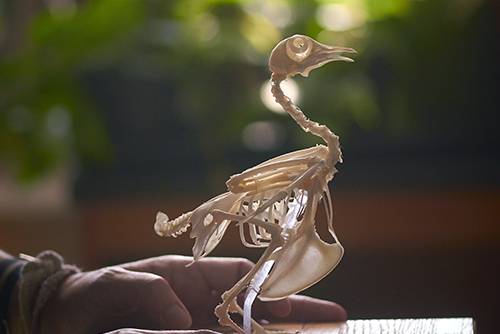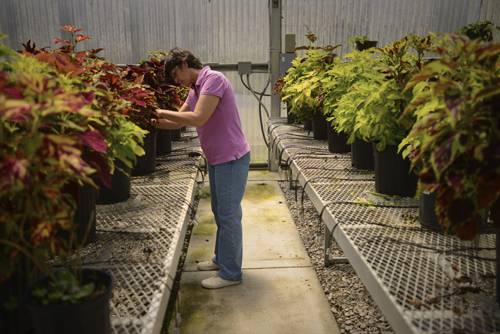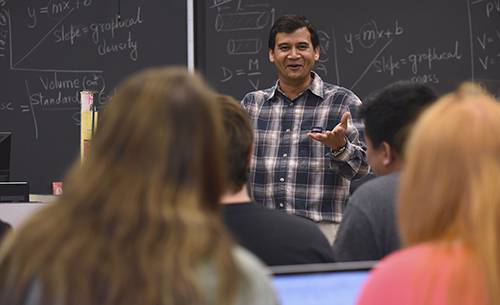CNC Machinist Operator/Programmer
Graduates from the CNC Machinist Operator/Programmer program are prepared for entry level employment in the manufacture of fabricated metal products, machinery, transportation equipment, and plastic products.
Aviation Airframe Mechanics
The Career Certificate in Aviation Airframe Mechanics prepares students with the skills necessary to inspect, service, repair, and overhaul various airframe systems and components, including aircraft structures, hydraulics, electrical and electronics, flight controls, landing gear, brakes, aircraft instruments, and cabin environmental systems.
Aviation Powerplant Mechanics
The Career Certificate in Aviation Powerplant Mechanics prepares students with the skills necessary to inspect, service, repair, and overhaul various powerplant systems and components, including reciprocating and turbine engines, electrical and electronics, precision measurement, propeller service, and fuel system diagnosis.
Cybersecurity Analyst
This 24-credit hour program, wholly embedded within the Associate in Science in Cybersecurity, offers a sequence of courses that provides rigorous content and relevant technical knowledge needed to prepare students for further education and careers such as cybersecurity analyst, security engineer, cybersecurity technician, data communication analyst, intrusion and detection analyst, security architect, or secure software developer.
Pre-Veterinary Technology
The Pre- Veterinary Technology advising track of the Associate in Arts degree presents the prerequisite courses of the Associate in Science in Veterinary Technology degree along with the requirements of the 60-credit hour Associate in Arts degree.
Pre-Physical Therapist Assistant
The Pre- Physical Therapist Assistant advising track provides students with a broad foundation in all areas of technical health care and prepares students to seek employment as a Physical Therapy Assistant.
Cybersecurity, Cyber Forensics
The Bachelor of Applied Science degree in Cybersecurity, Cyber Forensics is built on the eight fundamental domains identified in the world renowned ISC2 Certified Information Security System Professional (CISSP) Certification. Graduates of this BAS degree program who enter from the preferred academic pathway, Associate in Science in Cybersecurity, will be prepared to earn 17 industry standard certifications (9 at the associate level and 8 at the baccalaureate level). These certifications have been identified by industry partners as highly desirable in employees, provide quantifiable knowledge and skills in a specific technology, and are recognized worldwide. Throughout the program, students will work in a hands-on environment that will reinforce theoretical concepts and enable students to apply knowledge in real-world situations.
Robotics and Simulation Technician
Upon completion of this technical program, the student will be able to install, maintain and troubleshoot general robot systems and simulations. The content also includes Program Logic Controller (PLC) programming and basic electronics competencies as identified by the electronics industry.
Engineering Technology Support Specialist
A sequence of courses that provides coherent and rigorous content aligned with challenging academic standards and relevant technical knowledge and skills needed to prepare for further education and careers in the manufacturing career cluster; provides technical skill proficiency
Electronics Technician
This program offers a sequence of courses that provides coherent and rigorous content aligned with challenging academic standards and relevant technical knowledge and skills needed to prepare for further education and careers in the manufacturing career cluster; provides technical skill proficiency, and includes competency-based applied learning that contributes to the academic knowledge, higher-order reasoning and problem-solving skills, work attitudes, general employability skills, technical skills, and occupation-specific skills, and knowledge of all aspects of the manufacturing career cluster. The content includes but is not limited to DC circuits, AC circuits, solid-state devices, analog circuits, and digital circuits. Integrated into this content will be safe and efficient work practices, use of circuit diagrams and schematics, soldering, and laboratory practices. This program focuses on broad, transferable skills and stresses understanding and demonstration of the skills required to enter a variety of fields within the Electronics industry.
Cybersecurity, Information Security
The Bachelor of Applied Science (BAS) degree in Cybersecurity is built on the eight fundamental domains identified in the world renowned ISC2 Certified Information Security System Professional (CISSP) Certification. Graduates of this BAS degree program who enter from the preferred academic pathway, Associate in Science in Cybersecurity, will be prepared to earn 17 industry standard certifications (9 in the associate level and 8 at the baccalaureate level). These certifications have been identified by industry partners as highly desirable in employees, provide quantifiable knowledge and skills in a specific technology, and are recognized worldwide. Throughout the program, students will work in a hands-on environment that will reinforce theoretical concepts and enable students to apply knowledge in real-world situations. The program curriculum includes upper level courses in database, cloud, and operating system security in addition to risk management, ethics, and security testing. The curriculum, including the Associate in Science in Cybersecurity, includes 84 credit hours of cybersecurity coursework (42 credit hours at the associate level and 42 credit hours at the baccalaureate level) as well as the 36 credit hour general education curriculum.
Cybersecurity
This program covers a broad expanse of technological concepts and provides individuals with the skills required to implement effective and comprehensive information security controls to protect the confidentiality, integrity, and availability of information and information systems.
Computer Information Technology
The Computer Information Technology program prepares students by giving them a basic understanding of voice and data networks in their foundation courses. Typical job titles include computer repair technician, system administrator, network engineer, network security specialist and telecommunications specialist.
Mechanical Designer & Programmer
The Mechanical Designer / Programmer Certificate reflects the culmination of those learned skills and proficiencies that allow a student become proficient in 3D mechanical design with the use of Solidworks and Inventor. Students have the opportunity to acquire certifications in MasterCam 2D & 3D toolpath processes and programming. At completion students should be prepared to take the Solidworks certificate exam. Students will process their designs on various Haas machining centers.
CNC Composite Fabricator / Programmer
Offers training in Composite Fabrication, CNC Tool path Operations, Programming and Mastercam Design. The training also offers a solid foundation CNC Router setup and operations. Master Cam Router and ART is the primary programs used generate 2D & 3D projects on the Camtech CNC router. The goal of this certificate is to offer entry level skills in the CNC Composite fabrication industry. Students may choose to Co-op to gain working experiences while in school. The four courses that comprise this Certificate are all applicable to the Engineering Technology A.S., Specialization: Mechanical Design & Fabrication.
CNC Machinist / Fabricator
The CNC Machinist/Fabricator Certificate reflects the culmination of those learned skills and proficiencies that allow a student to set-up, operate and program CNC machining and turning centers. Pensacola State College is a Haas Educational Training Center (HTEC). Students will acquire specialized training on the Haas VF-2, TM-2 Mill and the Haas ST-10, TL-1 Lathe. Metal Fabrication training includes operations and processes in CNC plasma cutting, aircraft solid riveting and sheet metal processes, metalworking equipment operations and production Welding processes to include MIG (GMAW), TIG (GTAW), Stick (SMAW) and Oxyacetylene (OAW).
Welding Technology
This post-secondary adult vocational program prepares students for entry level work in the welding field in both the manufacturing and construction sectors. The program uses a combination of theoretical, simulation and hands on instruction. Strong emphasis is placed on safety as well as specific welding techniques and skills in an effort for students to obtain industry certifications. Students successfully progressing through the program are prepared to take National Center for Construction Education and Research (NCCER) welding certification exams as well as test to become certified through the American Welding Society.
Mechanical Design And Fabrication
The Mechanical Design & Fabrication specialization prepares students for careers in CNC machining, mechanical design, and metal fabrication. The program offers unique technical skills and opportunities for employment in local and regional industries. The coursework provides the basis for employment in a variety of manufacturing areas some of which include Computer Aided Design (CAD), Computer Aided Manufacturing (CAM), Computerized Machining (CNC), Production Welding; and Metal and Composite Fabrication.
Electronics Engineering Technology
The Electronics Engineering Technology Program provides students with the fundamentals of electronics that will prepare them as technicians in a variety of fields including computer technology, networking, instrumentation, and biomedical. Selected specialty courses are available to provide detailed instruction in these technical areas. The content includes but is not limited to DC circuits, AC circuits, solid-state devices, analog circuits, digital fundamentals and circuits. Integrated into this content will be communications skills, employability skills, safe and efficient work practices, use of circuit diagrams and schematics, and soldering.
Computer Programmer
This program prepares students for employment as a computer programmer trainee, systems analyst trainee, microcomputer specialist, and software application technicians. It also provides supplemental training for persons previously or currently employed in this area.
Computer Programming & Analysis
Computer Programming personnel can be found in many types of organizations performing a wide variety of computer tasks. Our computer programming degree focuses on helping the student develop the necessary skills that are essential to understanding computer systems, applications, and technology by providing a strong programming foundation while at the same time emphasizing specific career fields such as programmer, web developer, game developer, software testers, software designers, etc. The program also enables students to learn computer programming languages such a, Java, C++, C#, Visual Basic and PHP.
Computer Science
This field leads to employment in technical computer-related jobs such as programmer or systems analyst. The AA program meets prerequisites for transfer to the University of West Florida B.S. in Computer Science (Computer Science option) program as well as similar programs at other universities.
Computer Information Systems
This Associate in Arts degree concentration leads to employment in technical computer-related jobs such as a programmer or systems analyst. The AA program meets prerequisites for transfer to the University of West Florida B.S. in Computer Science (Computer Information Systems option) program as well as similar programs at other universities.
Cyber Forensics
The Cyber Forensics Associate of Science program will assist the student in development of skills required to identify, obtain and move forward needed electronic evidence through the evidence chain of custody.
*Please note that students will have to complete a prior record check at their own expense prior to registering for the Cyber Forensic Capstone class at the end of the Cyber Forensic program. The Capstone class will pair each student with a law enforcement agency where they will work during their last semester in the collection of cyber related data. No law enforcement agency will allow a student to work with them in any capacity if they are a convicted felon or if there is a serious prior criminal record of any kind. Accepting a student for the capstone is strictly up to the individual law enforcement agency. Therefore, please make note of this requirement in regards to your chosen academic program.
Pre-Engineering
This program provides the first two years of a university program leading to a baccalaureate degree in engineering. The Pensacola State College curriculum has the necessary prerequisite courses for a completer to begin upper-division work as a university junior in the major.
Physics
This program provides the first two years of a four-year university program leading to a baccalaureate degree in physics. The Pensacola State College curriculum has the necessary prerequisite courses for a completer to begin upper-division work as a university junior in the major.
Chemistry
This program provides the first two years of a four-year university program leading to a baccalaureate degree in chemistry. The Pensacola State College curriculum has the necessary SUS prerequisite courses for a completer to begin upper-division work as a university junior in the major.
Biochemistry
This program provides the first two years of a four-year university program leading to a baccalaureate degree in biochemistry. The Pensacola State College curriculum has the necessary SUS prerequisite courses for a completer to begin upper-division work as a university junior in the major.
Veterinary Technology
This two year, full-time program prepares students to perform entry-level skills as a Veterinary Technician. These skills are mastered through classroom instruction and supervised laboratory instruction. Each student will be assigned to a clinical work site throughout the program.
Natural Resource Conservation
This program of study offers the first two years of a baccalaureate degree program in forestry, wildlife ecology or resource conservation. Working in close cooperation with an academic advisor, Natural Resource Conservation students prepare programs of study according to their educational career goals, or they follow one of several specialized options. Natural Resource Conservation graduates find employment in government agencies, consulting firms and environmental education programs. This program was developed with agreement from several leading universities in forest studies including the University of Florida, Auburn University, University of Georgia and Mississippi State University.
Plant Science
Prepares students for transfer to a four-year institution after completion of two years at Pensacola State College. Landscape and Nursery Horticulture exposes students to the art and science of breeding, installing and maintaining plants that are used to enhance and improve the human environment. This inter-disciplinary program combines the study of landscape and nursery horticultural sciences with the study of business, management and communications.
Environmental Science
This program provides the first two years of a four-year university program leading to a baccalaureate degree in the area of Environmental Science or Environmental Studies.
Biology
The AA Biology curriculum provides the first two years of college education leading to a baccalaureate degree in one of the biological sciences and will insure articulation into the major at Florida SUS institutions.
Agricultural Science
The Agricultural Science program provides the first two years of a four-year baccalaureate degree. Students finishing the program will be prepared to enter the Florida Agricultural and Mechanical University agricultural program in Agriculture Science.
Mathematics
Students should consult with an advisor at the college or university they plan to attend for the specific courses recommended by that institution. We strongly encourage you to contact the Pensacola State College Mathematics Department for assistance in planning your program of study.

 PirateQ
PirateQ 

